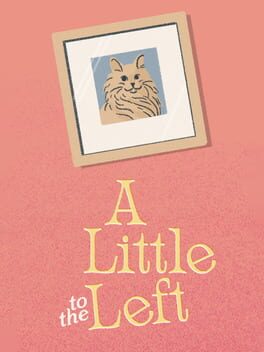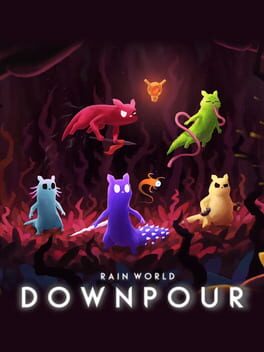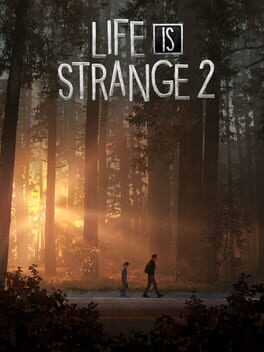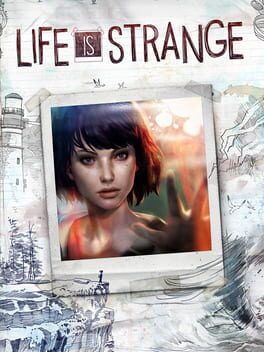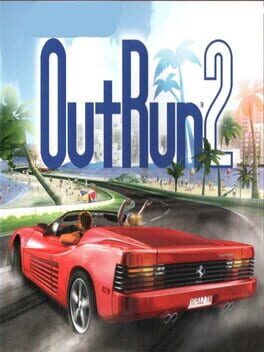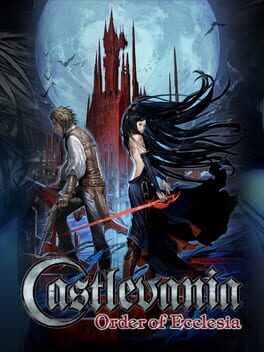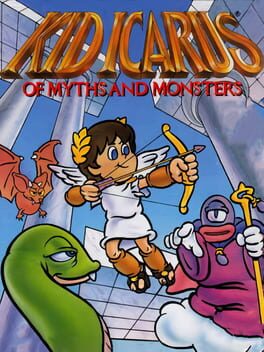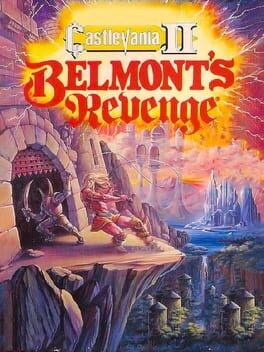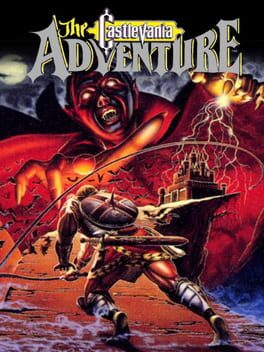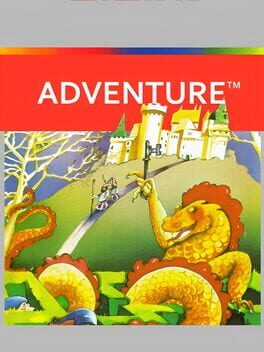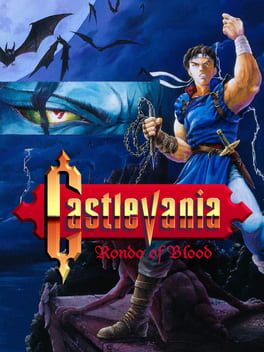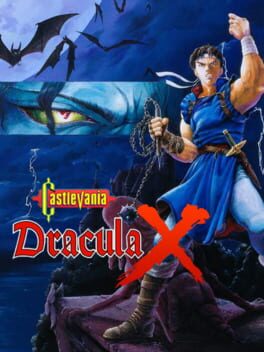baldur
2022
2023
To say that I was skeptical about Downpour going in would be an understatement. The original Rain World is, as of the time of writing, my favorite game of all time. One of the most important things about it to me is that it feels incredibly holistically designed, with every individual component thoughtfully considered in how it relates to the larger whole. Everything in Rain World is interconnected, reflecting the Buddhist existential themes explored within it.
With that, I think you can understand the trepidation I felt when I heard about this expansion. New content of any kind was enough reason to worry about the sanctity of the original experience being trampled over – an entire expansion developed by fans, with new characters, creatures, and regions, along with ““quality of life changes”” (a subtly threatening term when it comes to something as idiosyncratically designed as Rain World)? Let’s just say that I feared the worst. The new slugcats that had been revealed didn’t exactly fill me with optimism, either. Rain World cannot claim to be a realistic game, but it is grounded - and those new slugcats did not look grounded.
Now, Downpour has been released. Were my fears unfounded after all? Well…
Something that I really respect about this expansion, and give endless kudos to the team for, is how humbly it presents itself. Make no mistake, this is an absolutely massive DLC with heaps of new content, and yet the first thing you do after downloading it is navigate a new mod manager setting where all the new stuff is listed. This manager does not distinguish between workshop mods you can download for free and this new expansion you pay actual money for – Downpour essentially declares with pride instead of shame that it is little more than an officially supported collection of fan mods. I really, really appreciate that, because as we’ll see, Downpour is extremely ambitious; a layer of separation between what is and isn’t Videocult’s original work was an absolute necessity in my opinion, and I respect the hell out of the team for refusing to muddy the waters in this regard. More pragmatically, this is also a boon to Downpour’s reception – if you don’t like a creative decision, you can simply remind yourself that this is just one (very talented) team’s take on the original work. Nothing is sullied, but a lot can be gained.
Moving on now to discussing what has actually been added in this expansion: there’s no way around it, Downpour is a very different experience to classic Rain World in almost every regard. It turns the dial considerably towards “gaminess”, and makes for something that is a lot messier design-wise, which I just about expected. What I didn’t really expect was how high the narrative ambitions here were. This is something that would’ve troubled me immensely had I heard about it before release. Surprisingly, though, this came to be probably the part of the experience that I enjoyed the most; thanks to, again, that level of separation between the base game and Downpour, and also because the new narrative stuff is honestly nothing to scoff at quality-wise and came a lot closer to replicating the thematic and atmospheric flavor of the original than I was expecting. Mind you, that does not mean there isn’t any tension between what the original Rain World was going for and what Downpour is. The outlandish abilities of the new slugcats definitely do undermine the grounded ethos a bit, for one (though I appreciate that they’re all given reasonable explanations in-universe). More importantly, though, the narrative priorities have completely shifted.
In the original game, the story of the setting (the "lore") was told in the background and was totally subservient to the player's own personal journey of surviving an enigmatic world. You'd stumble upon Moon, or Five Pebbles, and you'd react with awe and wonder, but lacking context and familiarity, file those experiences away as simply another discovery in a pile of them. In Downpour, what was previously the background narrative takes center stage. You always know where to go – to Pebbles and Moon, probably in that order. That doesn't mean that there are no surprises along the way, but on a whole the design philosophy of Downpour is totally juxtaposed with the original’s. In simpler terms: the original was centered firmly around the journey, whereas Downpour is all about the destination.
The slugcats aren't the protagonists any more - they're side characters in a narrative that centers on the iterators, with our dual protagonists being the two we can visit in-game, Five Pebbles and Looks to the Moon. Now, to be completely accurate, this shift was technically already present in the original game. Fundamentally, every new slugcat campaign in Downpour is building on the groundwork laid by the Hunter’s campaign, which served as the original game’s hard mode. What makes Downpour feel like such a change, however, is the sheer totality of what is added. Hunter felt like a side mode, a way to capitalize on the game’s many brilliant mechanics in a more gamey way while still grounding it narratively. But when you add twice the amount of campaigns the original game had (and counting the Monk separately is honestly generous), it's hard not to look at these "side modes" as having become the main dish. The campaigns are thus reframed as small vignettes that serve as the building blocks of a larger narrative that is far more epic in scale – a real opus, one that presumably spans centuries and centuries. And quality-wise, I found myself rather enjoying the story being told. Though I am a little ambivalent on some particularities, on a whole the arcs of Pebbles and Moon are compelling to follow, and full of evocative moments.
The Saint’s campaign was a particular highlight; seeing the world in an even more ruinous state, collapsing in on itself, with cycles fading out as the periodic torrential rain gives way to never-ending snowstorms, was incredibly affecting and felt like a very fitting note to leave this setting on; though I am a tad conflicted on how bombastically that campaign ends – I almost feel like it totally undermines the quiet poignancy of what came before, but I’d also be lying if I said that I didn’t find it to be a fascinating development that, in many ways, pulls a lot of the threads of the narrative together pretty well.
The rest of the campaigns range narratively from decent to great. Gourmand I don’t have much to say about, but I quite like the addition of the Outer Expanse – venturing outside the grounds of the iterators and back on to your (aesthetically inspired) native turf was very exciting (if a tad fanservice-y). Spearmaster allows for the experience of exploring Moon’s facility and seeing her fully operating, which is nice, but I’m not that fond of how the bulk of the narrative is told through chatlogs. Artificer’s story was like a self-contained filler episode in the context of the larger narrative, but it really won me over as it went on and somehow managed to not make me too troubled over the addition of a boss fight to Rain World of all games – it felt grounded in the narrative and avoided the most egregious pitfalls like Dark Souls style titles and healthbars. And Rivulet operates beautifully as a brief moment of optimism, with Pebbles’ redemption and the restoration of Moon preceding the melancholy of the Saint’s conclusive campaign.
With these narrative additions, a question has arisen in the community on whether Downpour is or isn’t officially canon, and ultimately, I think that question is missing the forest for the trees. It feels to me like Videocult, in officially sanctioning this fan effort, is going beyond basic notions of ‘canonicity’, essentially renouncing total ownership of the setting they’ve created and handing it over to their audience. This is further supported by Downpour separating itself firmly from the original work, and not distinguishing itself from other fan mods anyone can make. The question of canonicity then becomes functionally meaningless and a hindrance to productive discourse. It’s a different work, made by different people, with different priorities. It comments on the original ‘text’ (if you will) extensively, but is ultimately firmly separate. The only question that really matters to me is whether Downpour is engaging, interesting and worth experiencing. My personal answer to that question is that it is.
With that, I think you can understand the trepidation I felt when I heard about this expansion. New content of any kind was enough reason to worry about the sanctity of the original experience being trampled over – an entire expansion developed by fans, with new characters, creatures, and regions, along with ““quality of life changes”” (a subtly threatening term when it comes to something as idiosyncratically designed as Rain World)? Let’s just say that I feared the worst. The new slugcats that had been revealed didn’t exactly fill me with optimism, either. Rain World cannot claim to be a realistic game, but it is grounded - and those new slugcats did not look grounded.
Now, Downpour has been released. Were my fears unfounded after all? Well…
Something that I really respect about this expansion, and give endless kudos to the team for, is how humbly it presents itself. Make no mistake, this is an absolutely massive DLC with heaps of new content, and yet the first thing you do after downloading it is navigate a new mod manager setting where all the new stuff is listed. This manager does not distinguish between workshop mods you can download for free and this new expansion you pay actual money for – Downpour essentially declares with pride instead of shame that it is little more than an officially supported collection of fan mods. I really, really appreciate that, because as we’ll see, Downpour is extremely ambitious; a layer of separation between what is and isn’t Videocult’s original work was an absolute necessity in my opinion, and I respect the hell out of the team for refusing to muddy the waters in this regard. More pragmatically, this is also a boon to Downpour’s reception – if you don’t like a creative decision, you can simply remind yourself that this is just one (very talented) team’s take on the original work. Nothing is sullied, but a lot can be gained.
Moving on now to discussing what has actually been added in this expansion: there’s no way around it, Downpour is a very different experience to classic Rain World in almost every regard. It turns the dial considerably towards “gaminess”, and makes for something that is a lot messier design-wise, which I just about expected. What I didn’t really expect was how high the narrative ambitions here were. This is something that would’ve troubled me immensely had I heard about it before release. Surprisingly, though, this came to be probably the part of the experience that I enjoyed the most; thanks to, again, that level of separation between the base game and Downpour, and also because the new narrative stuff is honestly nothing to scoff at quality-wise and came a lot closer to replicating the thematic and atmospheric flavor of the original than I was expecting. Mind you, that does not mean there isn’t any tension between what the original Rain World was going for and what Downpour is. The outlandish abilities of the new slugcats definitely do undermine the grounded ethos a bit, for one (though I appreciate that they’re all given reasonable explanations in-universe). More importantly, though, the narrative priorities have completely shifted.
In the original game, the story of the setting (the "lore") was told in the background and was totally subservient to the player's own personal journey of surviving an enigmatic world. You'd stumble upon Moon, or Five Pebbles, and you'd react with awe and wonder, but lacking context and familiarity, file those experiences away as simply another discovery in a pile of them. In Downpour, what was previously the background narrative takes center stage. You always know where to go – to Pebbles and Moon, probably in that order. That doesn't mean that there are no surprises along the way, but on a whole the design philosophy of Downpour is totally juxtaposed with the original’s. In simpler terms: the original was centered firmly around the journey, whereas Downpour is all about the destination.
The slugcats aren't the protagonists any more - they're side characters in a narrative that centers on the iterators, with our dual protagonists being the two we can visit in-game, Five Pebbles and Looks to the Moon. Now, to be completely accurate, this shift was technically already present in the original game. Fundamentally, every new slugcat campaign in Downpour is building on the groundwork laid by the Hunter’s campaign, which served as the original game’s hard mode. What makes Downpour feel like such a change, however, is the sheer totality of what is added. Hunter felt like a side mode, a way to capitalize on the game’s many brilliant mechanics in a more gamey way while still grounding it narratively. But when you add twice the amount of campaigns the original game had (and counting the Monk separately is honestly generous), it's hard not to look at these "side modes" as having become the main dish. The campaigns are thus reframed as small vignettes that serve as the building blocks of a larger narrative that is far more epic in scale – a real opus, one that presumably spans centuries and centuries. And quality-wise, I found myself rather enjoying the story being told. Though I am a little ambivalent on some particularities, on a whole the arcs of Pebbles and Moon are compelling to follow, and full of evocative moments.
The Saint’s campaign was a particular highlight; seeing the world in an even more ruinous state, collapsing in on itself, with cycles fading out as the periodic torrential rain gives way to never-ending snowstorms, was incredibly affecting and felt like a very fitting note to leave this setting on; though I am a tad conflicted on how bombastically that campaign ends – I almost feel like it totally undermines the quiet poignancy of what came before, but I’d also be lying if I said that I didn’t find it to be a fascinating development that, in many ways, pulls a lot of the threads of the narrative together pretty well.
The rest of the campaigns range narratively from decent to great. Gourmand I don’t have much to say about, but I quite like the addition of the Outer Expanse – venturing outside the grounds of the iterators and back on to your (aesthetically inspired) native turf was very exciting (if a tad fanservice-y). Spearmaster allows for the experience of exploring Moon’s facility and seeing her fully operating, which is nice, but I’m not that fond of how the bulk of the narrative is told through chatlogs. Artificer’s story was like a self-contained filler episode in the context of the larger narrative, but it really won me over as it went on and somehow managed to not make me too troubled over the addition of a boss fight to Rain World of all games – it felt grounded in the narrative and avoided the most egregious pitfalls like Dark Souls style titles and healthbars. And Rivulet operates beautifully as a brief moment of optimism, with Pebbles’ redemption and the restoration of Moon preceding the melancholy of the Saint’s conclusive campaign.
With these narrative additions, a question has arisen in the community on whether Downpour is or isn’t officially canon, and ultimately, I think that question is missing the forest for the trees. It feels to me like Videocult, in officially sanctioning this fan effort, is going beyond basic notions of ‘canonicity’, essentially renouncing total ownership of the setting they’ve created and handing it over to their audience. This is further supported by Downpour separating itself firmly from the original work, and not distinguishing itself from other fan mods anyone can make. The question of canonicity then becomes functionally meaningless and a hindrance to productive discourse. It’s a different work, made by different people, with different priorities. It comments on the original ‘text’ (if you will) extensively, but is ultimately firmly separate. The only question that really matters to me is whether Downpour is engaging, interesting and worth experiencing. My personal answer to that question is that it is.
2019
works precisely because of how imperfect it is - there's a surreal quality to the stories this thing spits out that is genuinely engaging and evocative. as soon as tools like these start competently mimicking human output, they cease to be interesting. also, jerma's streams of this game are some of the funniest shit i've ever seen.
2018
2015
This review contains spoilers
i was so prepared to go on a long spiel about how you can never divorce your subjective experience from a piece of art or give it a balanced and objective overview, to explain how i still value a game that i no longer regard as good. but after going through this one again, i can’t honestly say that i feel negatively about it. is it as effective as when i was a young teen? absolutely not; it has a fuckton of issues to be sure. but even if the details are frequently terrible, the broad strokes are there, and they work. this whole thing hinges on max and chloe’s bond being deeply felt by the player. it counts on you yearning for these two to find and hold on to each other no matter how hard fate tries to separate them - and in spite of the stilted dialogue, saccharine plot beats, one-dimensional writing, continuity errors, derivative story structure, it being hopelessly unprepared to explore the psychology of its characters or the ramifications of its premise - my god if it doesn’t get me to that point by the end.
is life is strange great? is it even good? i couldn’t say. but it is mine. it tethers who i am to who i was – a sad, lonely, volatile 14-year-old who saw something of themselves in the cosmic tragedy laid out here; for better or worse, it’s been written into the fabric of my soul. and, i don’t know, maybe only a game as messy, flawed, and frequently misguided as this one could’ve ever managed to speak so powerfully to my inner life at the time. it’s a game with a decidedly teenage sensibility; not just because it tries and fails so sincerely to be cool, but because it’s absolutely mired in melodramatic solipsism – to a point where it’s sort of surprising it was even written by adults at all. and though it strangely claims its characters are early adults, i think it’s crucial to recognize that in appearance and behavior, the age group they actually correspond to are early adolescents.
it's this innate teenage-ness that makes the game work for me. through this lens, even its many missteps can start to seem part of a larger, more meaningful picture. it all culminates in a final choice so utterly, wonderfully psychotic that the only way to coherently understand the catharsis is through the distorted logic of adolescence.
sacrificing arcadia bay, though a morally indefensible, perplexing option to be given on the surface, is the game’s myopic and naïve teenage logic taken to a natural conclusion. the time travel powers, especially early on, serve largely as a mechanism for wish-fulfillment wherein any negative consequence of navigating the messy social dynamics of teenage life is nulled. here, you get to keep them. here, you get to hold on to love, no matter the cost. it’s a twisted sort of happy ending, a beautiful fantasy tinged with the blood of innocents. to defy fate - to ride out from the destruction and carnage forever young. you think you know better than to choose it, but can you really resist the tantalizing pureness of it?
sacrificing chloe is the cold reality. it’s growing up. it’s accepting that the universe has a plan for you, and it’s not always nice. it’s accepting that with life comes tragedy – comes death. it’s unfair. achingly unfair.
is life is strange great? is it even good? i couldn’t say. but it is mine. it tethers who i am to who i was – a sad, lonely, volatile 14-year-old who saw something of themselves in the cosmic tragedy laid out here; for better or worse, it’s been written into the fabric of my soul. and, i don’t know, maybe only a game as messy, flawed, and frequently misguided as this one could’ve ever managed to speak so powerfully to my inner life at the time. it’s a game with a decidedly teenage sensibility; not just because it tries and fails so sincerely to be cool, but because it’s absolutely mired in melodramatic solipsism – to a point where it’s sort of surprising it was even written by adults at all. and though it strangely claims its characters are early adults, i think it’s crucial to recognize that in appearance and behavior, the age group they actually correspond to are early adolescents.
it's this innate teenage-ness that makes the game work for me. through this lens, even its many missteps can start to seem part of a larger, more meaningful picture. it all culminates in a final choice so utterly, wonderfully psychotic that the only way to coherently understand the catharsis is through the distorted logic of adolescence.
sacrificing arcadia bay, though a morally indefensible, perplexing option to be given on the surface, is the game’s myopic and naïve teenage logic taken to a natural conclusion. the time travel powers, especially early on, serve largely as a mechanism for wish-fulfillment wherein any negative consequence of navigating the messy social dynamics of teenage life is nulled. here, you get to keep them. here, you get to hold on to love, no matter the cost. it’s a twisted sort of happy ending, a beautiful fantasy tinged with the blood of innocents. to defy fate - to ride out from the destruction and carnage forever young. you think you know better than to choose it, but can you really resist the tantalizing pureness of it?
sacrificing chloe is the cold reality. it’s growing up. it’s accepting that the universe has a plan for you, and it’s not always nice. it’s accepting that with life comes tragedy – comes death. it’s unfair. achingly unfair.
2003
modding eurobeat into this game is probably one of the better ideas i've had in my life
definitely a higher tier castlevania but i’m still a bit mixed on it. feels a little too stuck between worlds for me. it takes half-steps towards preserving both the tightly designed combat encounters of classicvania and the free-form exploration of igavania, but in doing so fails to fully succeed at either and ends up feeling just the tiniest bit ill-conceived. frankly i just prefer it when games pick one core goal to focus their attention at trying to fulfill instead of stretching themselves thin trying to achieve everything at once. i also think it's funny how much more emphasized the narrative is in IGA's entries when i find them by and large to be way less successful in that regard compared to the rest of the series. symphony and aria worked because they were so heavily steeped in the series lore and mythology, illuminating intriguing details about the overarching narrative while at once subverting the archetypal plot these games tended to serve. excluding those two, though, every other game helmed by IGA has featured snoozefest plotlines that feel completely inconsequential, and we're really scraping the bottom of the barrel by this point; ecclesia being the focus here is the equivalent of those third-rate comic book heroes that the marvel cinematic universe keeps trying to push because they've exhausted all of the actually significant characters in their canon but have to keep the money machine going somehow. try as it might, i remain totally unconvinced that i should care about any of this – that is, with the exception of shanoa, who’s actually really cool and among the best protags this series has seen. but one good character does not a good story make.
i’ve been quite harsh on this game so far but my score speaks for itself, this is ultimately a rather good game. the glyph system is interesting, probably the best gimmick mechanic these games have tried to implement, the way MP works is clever (sort of prophetic, even, with demon’s souls coming out the year after), and the combat tests your skills in a way that this series hasn’t really attempted to since rondo. though i think there’s quite a bit of variance in how good the encounters here are, this overall has the best pantheon of bosses in the series by quite a margin - not just from a mechanical overview but also a presentational one; highlights include shanoa's hilariously soft-spoken “go to hell 😊” before she dumps an entire elevator on that fucking crab boss, and [spoiler]’s deranged cackling when flying through the air at mach 10 speed. also has easily the best drac fight in the series but to be fair the bar for that is on the floor.
i’ve been quite harsh on this game so far but my score speaks for itself, this is ultimately a rather good game. the glyph system is interesting, probably the best gimmick mechanic these games have tried to implement, the way MP works is clever (sort of prophetic, even, with demon’s souls coming out the year after), and the combat tests your skills in a way that this series hasn’t really attempted to since rondo. though i think there’s quite a bit of variance in how good the encounters here are, this overall has the best pantheon of bosses in the series by quite a margin - not just from a mechanical overview but also a presentational one; highlights include shanoa's hilariously soft-spoken “go to hell 😊” before she dumps an entire elevator on that fucking crab boss, and [spoiler]’s deranged cackling when flying through the air at mach 10 speed. also has easily the best drac fight in the series but to be fair the bar for that is on the floor.
the rare game boy sequel to an nes game that actually fully preserves the tone and feel of the original and in fact is just a straight-up attempt to refine what came before. a commendable and not at all unsuccessful attempt, but it's also just the slightest bit boring for it. the original delighted in surprising and toying with the player's expectations - if any nes title warranted a wacky and out-there handheld sequel, it was that one.
2022
worth playing, but only to gain true appreciation for how good games can be when they're not shameless garbage. there's something very life-affirming in sitting down and experiencing something that values your time and attention this little and realizing, wow, this really isn't actually what most games are like; most developers at least have a modicum of respect for their audience and a genuine desire to engage players and provide them with something of actual substance, regardless of how successfully they ultimately manage to pull that off. it takes something this nakedly exploitative, devoid of effort and borderline dystopian to really jolt your brain into realizing how good you normally have it. thank you, video games, for usually not being this shit.
the cooler castlevania 2
this game is missing a bit of the charm of the adventure imo but i'm not gonna argue that it's anything but a marked improvement on that game overall. smoothes out most of the rough edges and takes its concepts even further. ropes > stairs any day. enjoyably novel story concept here too, christopher and soleil are pretty underrated as far as belmonts go. great stuff.
this game is missing a bit of the charm of the adventure imo but i'm not gonna argue that it's anything but a marked improvement on that game overall. smoothes out most of the rough edges and takes its concepts even further. ropes > stairs any day. enjoyably novel story concept here too, christopher and soleil are pretty underrated as far as belmonts go. great stuff.
honestly a very inventive and entertaining take on the castlevania formula, even if marred considerably by technological constraints. design-wise this thing is pretty damn airtight, its faults lying almost entirely with stuff like the control physics and hit detection (you can go some ways towards mitigating the kinaesthetic deficiencies with romhacks, but definitely not all the way). the enemy designs however are solid (better dracula fight than on the nes dont @ me) and the levels well constructed, with tons of clever moments packed in, not to mention well considered from a conceptual perspective - it's very refreshing to see a break from the rote repetition of the original game's level ideas that the series sometimes has a habit of falling into. you go downwards to reach dracula this time! how cool is that? the fire whip is also a respectable attempt at making the upgrade system actually have a meaningful impact on the gameplay, and its inclusion helps make up for the omission of sub-weapons. game boy sequels to established console franchises infamously tend to contain lots of odd novelties that distinguish those games from the main-line titles, and this game is no different in that regard. while it makes for a very charming experience, the game doesn't quite amount to an underrated masterpiece on the level of, say, metroid 2 - though i think it really could've been, had the developers managed to better overcome the limitations of the system. someone should really get working on an am2r style remake of this game (and yes, i'm aware of the adventure rebirth).
1979
this 40 year old piece of software, made up of 4 kilobytes of code, is a better distillation of what makes explorative action games fun and intriguing than what you're likely to see from the vast majority of modern attempts at the genre. this has a built-in randomizer! an early slice of video game perfection.
2022
This review contains spoilers
really solid for the most part, though i do have some quibbles.
i think the way dialogue checks are handled in this game is very cool – the first time that the game has you attempting to persuade someone and it takes into account your prior interactions (in a rather strict way) it was an awesome moment that reminded me of how disco elysium impressed me on first playthrough, and i think in some ways this game is even more successful in getting you to be cognizant of what you’re saying and who you’re saying it to. that said, i really think that the “THIS WILL BE REMEMBERED” pop-ups are wrongheaded and go directly against how this mechanic otherwise fosters immersion. in real life, you don’t get non-diegetic alerts about how your interactions are being perceived by other people – neither should you here.
it's always easy with a narrative game like this that focuses on branching paths and player decision to complain that the range of choices is too narrow. i guess where the line falls for me on whether it is or isn't a fair criticism to levy is when it takes me out of the story and alerts me to the artificiality of the game. to be more specific, by the end of act 1 i had investigated most of the leads and was pretty confident in who the culprit was. however, i had also discovered that there was more to the case and that the culprit, along with several other suspects, was being manipulated by an unknown actor (sidenote, i really like how limited the time for your investigation is, feels like another case where the devs were honing in on some untapped potential from disco elysium). moreover, i sympathized with the culprit’s motives and wasn’t comfortable with condemning him to death (in part because he had a family while the other suspects didn’t). needless to say this is an extremely cool situation to throw at the player, but where the game falters for me is in how it allows you to resolve it. andreas, the protagonist, is playing detective to clear his friend piero's name, but what i decided was the best course of action in this situation was actually to withhold the evidence that i'd gathered to the archdeacon who was conducting the inquiry, even if it came at the cost of piero's death. my reasoning was that piero was very old (indeed, it turns out that he passes away in the next few years) and it seemed an action that he might've been able to appreciate given his harmonious, go-with-the-flow worldview, as long as it meant preventing the unjust death of someone else. in any case it's an imperfect solution to an extremely tough situation and i was impressed that the game had gotten me to reach such a morally complex conclusion. however, when it actually came time to have an audience with the archdeacon, i was not allowed to (entirely) withhold information. it turns out that there is, in fact, no situation in which brother piero is executed (probably because his death is the impetus for andreas' return in act 2), even though the archdeacon considers him the strongest suspect before you get involved. the game wants to force you into a tough position of having to essentially choose who gets to die for the crime, but prevents you from choosing brother piero, in spite of that being imo the juciest choice from a narrative standpoint - to choose the outcome that you embarked on this entire quest to prevent is deliciously ironic, and it's also the most congruous with the feeling of guilt that the game tries to foster in act 2 given that players have probably grown more attached to piero than any of the other suspects (you also know for a certainty that he's innocent). instead, i chose to implicate someone who i didn't really think did it but liked the least, which would've been an interesting choice if i had arrived at it organically, but it just doesn't hit when i feel artificially backed into it by the game itself. the game’s attempts to hold it over me just falls flat when i’m thinking “well, i didn’t want to do that, you made me”
it doesn't help that act 1 is easily the best one and that the game slowly loses steam over time. not to any debilitating degree - act 2 and 3 are still quite good - but they just aren't able to match the freshness and cohesiveness of the first one. there are some other issues - i felt that the prose was often too expository, especially at the beginning (it’s hard to be charitable to stuff like this when disco elysium has so concretely exposed the literary possibilities within this medium) – however, these are relatively minor. what remains, overall, is a work that, in spite of some shortcomings, i feel comfortable placing in the upper echelons of video game narratives.
i think the way dialogue checks are handled in this game is very cool – the first time that the game has you attempting to persuade someone and it takes into account your prior interactions (in a rather strict way) it was an awesome moment that reminded me of how disco elysium impressed me on first playthrough, and i think in some ways this game is even more successful in getting you to be cognizant of what you’re saying and who you’re saying it to. that said, i really think that the “THIS WILL BE REMEMBERED” pop-ups are wrongheaded and go directly against how this mechanic otherwise fosters immersion. in real life, you don’t get non-diegetic alerts about how your interactions are being perceived by other people – neither should you here.
it's always easy with a narrative game like this that focuses on branching paths and player decision to complain that the range of choices is too narrow. i guess where the line falls for me on whether it is or isn't a fair criticism to levy is when it takes me out of the story and alerts me to the artificiality of the game. to be more specific, by the end of act 1 i had investigated most of the leads and was pretty confident in who the culprit was. however, i had also discovered that there was more to the case and that the culprit, along with several other suspects, was being manipulated by an unknown actor (sidenote, i really like how limited the time for your investigation is, feels like another case where the devs were honing in on some untapped potential from disco elysium). moreover, i sympathized with the culprit’s motives and wasn’t comfortable with condemning him to death (in part because he had a family while the other suspects didn’t). needless to say this is an extremely cool situation to throw at the player, but where the game falters for me is in how it allows you to resolve it. andreas, the protagonist, is playing detective to clear his friend piero's name, but what i decided was the best course of action in this situation was actually to withhold the evidence that i'd gathered to the archdeacon who was conducting the inquiry, even if it came at the cost of piero's death. my reasoning was that piero was very old (indeed, it turns out that he passes away in the next few years) and it seemed an action that he might've been able to appreciate given his harmonious, go-with-the-flow worldview, as long as it meant preventing the unjust death of someone else. in any case it's an imperfect solution to an extremely tough situation and i was impressed that the game had gotten me to reach such a morally complex conclusion. however, when it actually came time to have an audience with the archdeacon, i was not allowed to (entirely) withhold information. it turns out that there is, in fact, no situation in which brother piero is executed (probably because his death is the impetus for andreas' return in act 2), even though the archdeacon considers him the strongest suspect before you get involved. the game wants to force you into a tough position of having to essentially choose who gets to die for the crime, but prevents you from choosing brother piero, in spite of that being imo the juciest choice from a narrative standpoint - to choose the outcome that you embarked on this entire quest to prevent is deliciously ironic, and it's also the most congruous with the feeling of guilt that the game tries to foster in act 2 given that players have probably grown more attached to piero than any of the other suspects (you also know for a certainty that he's innocent). instead, i chose to implicate someone who i didn't really think did it but liked the least, which would've been an interesting choice if i had arrived at it organically, but it just doesn't hit when i feel artificially backed into it by the game itself. the game’s attempts to hold it over me just falls flat when i’m thinking “well, i didn’t want to do that, you made me”
it doesn't help that act 1 is easily the best one and that the game slowly loses steam over time. not to any debilitating degree - act 2 and 3 are still quite good - but they just aren't able to match the freshness and cohesiveness of the first one. there are some other issues - i felt that the prose was often too expository, especially at the beginning (it’s hard to be charitable to stuff like this when disco elysium has so concretely exposed the literary possibilities within this medium) – however, these are relatively minor. what remains, overall, is a work that, in spite of some shortcomings, i feel comfortable placing in the upper echelons of video game narratives.
